Meeting Our Mission
Minnesota State system schools are given room to devise their own distinct missions.
M State’s current mission, approved in 2018, states, “Minnesota State Community and Technical College specializes in affordable and exceptional education, service, and workforce training. We welcome all students and engage them in shaping their futures and their communities.”
Here's how we do it.
Welcoming and engaging all students
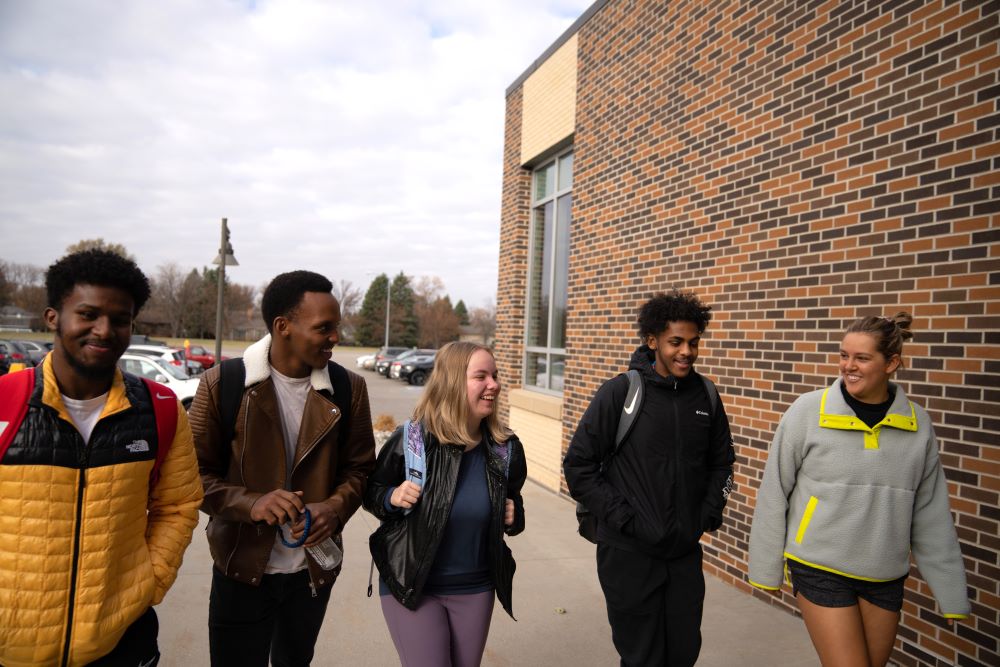
M State’s student body has grown increasingly diverse over the past 20 years, and the college seeks out initiatives, events, partnerships and other opportunities that reach out to and engage current or prospective students in inclusive ways.
The Office of Equity and Inclusion works to empower M State students, faculty and staff to explore a deeper respect for diversity in all its forms, regularly coordinating programs and facilitating conversations about equity and cultural understanding.
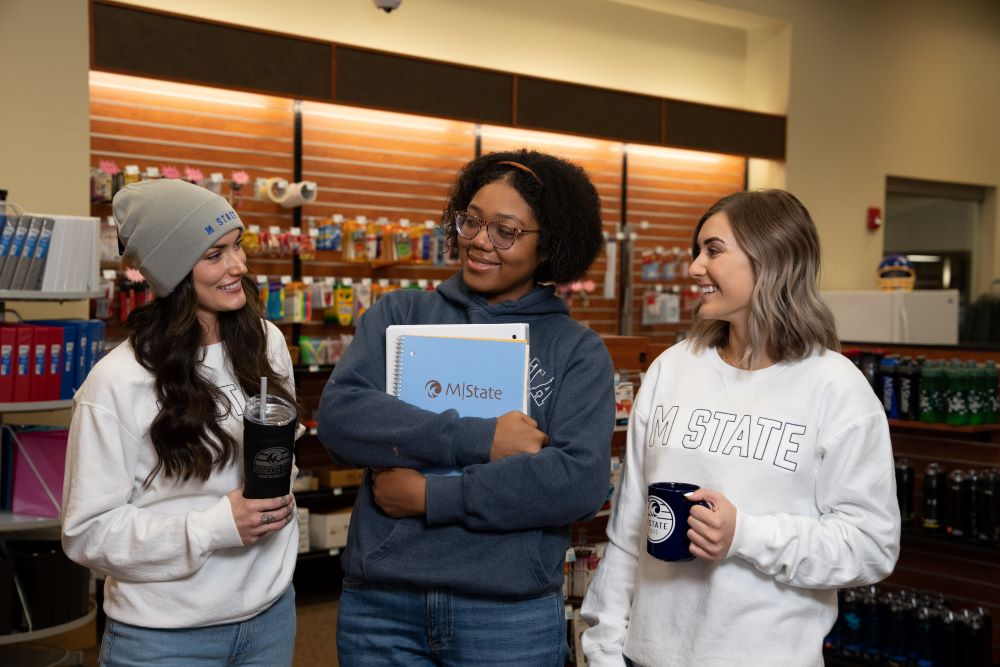 M State takes part in collaborative efforts like the state system’s Equity by Design initiative, and in innovative partnerships aimed at inclusivity. In 2022, for example, M State partnered with Xcel Energy and the Minnesota State Energy Center of Excellence to launch a new, inclusive training program in electrical line work – a Twin Cities-based program designed to engage more students with diverse backgrounds.
M State takes part in collaborative efforts like the state system’s Equity by Design initiative, and in innovative partnerships aimed at inclusivity. In 2022, for example, M State partnered with Xcel Energy and the Minnesota State Energy Center of Excellence to launch a new, inclusive training program in electrical line work – a Twin Cities-based program designed to engage more students with diverse backgrounds.
Today, there are more students of color enrolled at M State than ever before. In 2023, 28% of M State students identified as Black, Hispanic, Asian, American Indian or other non-white racial identity – a higher percentage than within the general populations of any of M State’s four campus communities.
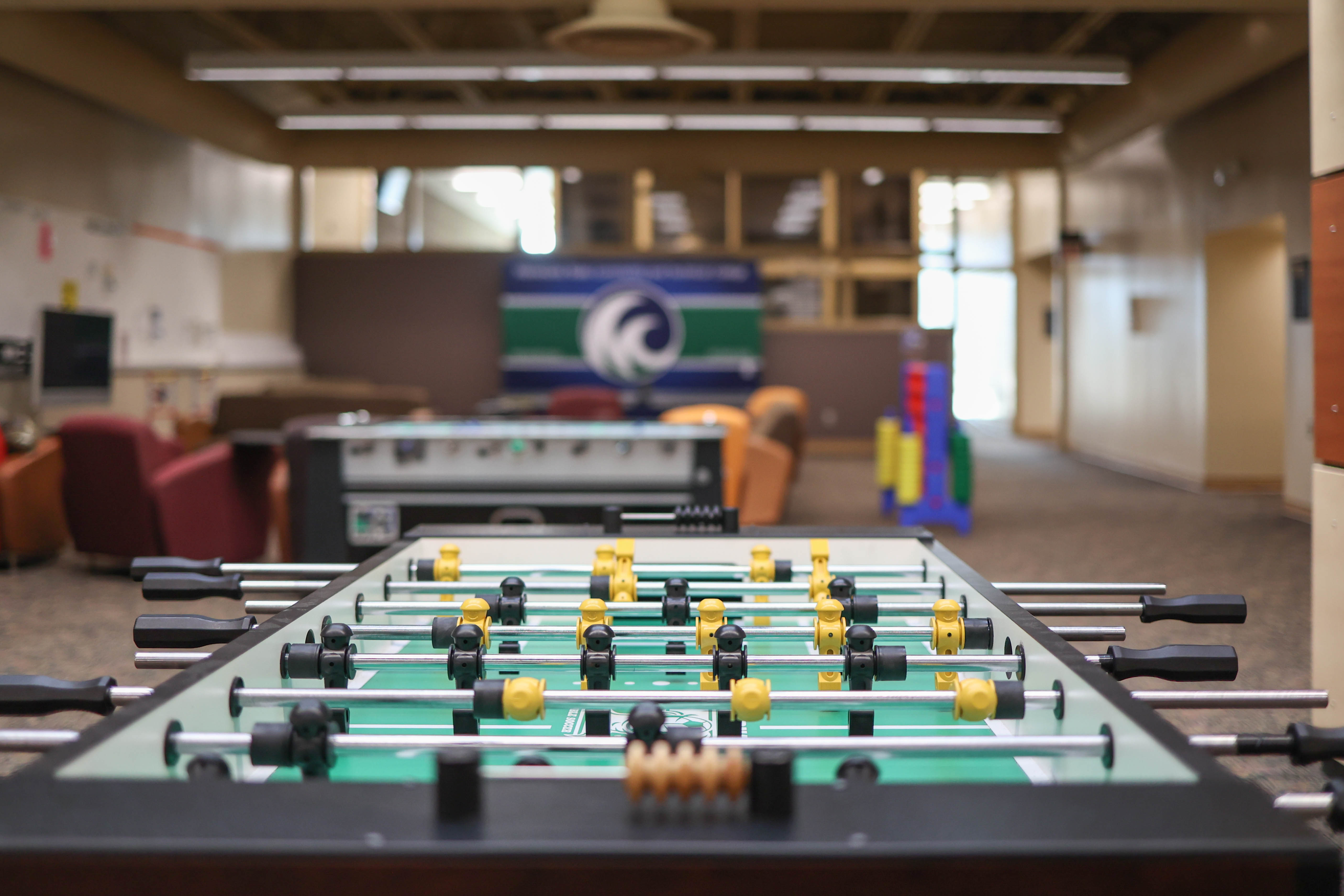 Since 2003, the majority of M State students – 60% – have identified as female, 20% have been among the first generation in their family to go to college, and 34% have been eligible for federal Pell grants, meaning they displayed an exceptional financial need. Those percentages have all been on the rise in recent years, most significantly the number of students who are Pell-eligible, which is now at 50%.
Since 2003, the majority of M State students – 60% – have identified as female, 20% have been among the first generation in their family to go to college, and 34% have been eligible for federal Pell grants, meaning they displayed an exceptional financial need. Those percentages have all been on the rise in recent years, most significantly the number of students who are Pell-eligible, which is now at 50%.
When student and community needs change, M State responds by adapting its programs or services. During the COVID-19 pandemic, for example, when more students were facing financial hardship and struggling to meet their nutritional needs, M State introduced new or expanded food pantries at all four campuses. The college also emphasized its free counseling services and spread the word about other available mental health resources for students.
“The students we serve have more needs and the communities we serve have different needs than they did just a few years ago,” says President Brimhall. “While we worry about these challenges, I know M State is strong and well-positioned to respond in meaningful ways. We are always open to honing and enhancing our services for the good of our students and communities.”
Affordability
M State has one of the lowest college tuition rates in the state, at $180.80 per credit for Minnesota residents. What’s more, thanks to innovative programs and partnerships, more than half of all M State students attend completely tuition-free – 52% in 2022.
M State is fortunate to have two foundations that advocate and fundraise for the college and its students: M State Foundation and Alumni, and Fergus Area College Foundation. Donations raised by these nonprofit organizations go toward student scholarships and classroom resources. In fiscal year 2022, the foundations awarded 221 student scholarships totaling more than $350,000.
In addition, the college continues to implement new Z-Degree (Zero Textbook Cost) programs and courses, which can save students hundreds and even thousands of dollars over the course of a two-year program. M State announced this past year that it would soon be offering two new 60-credit Z-Degree programs – two of the first Z-Degree options in the state to go beyond a basic Associate of Arts degree.
Exceptional Education and Service
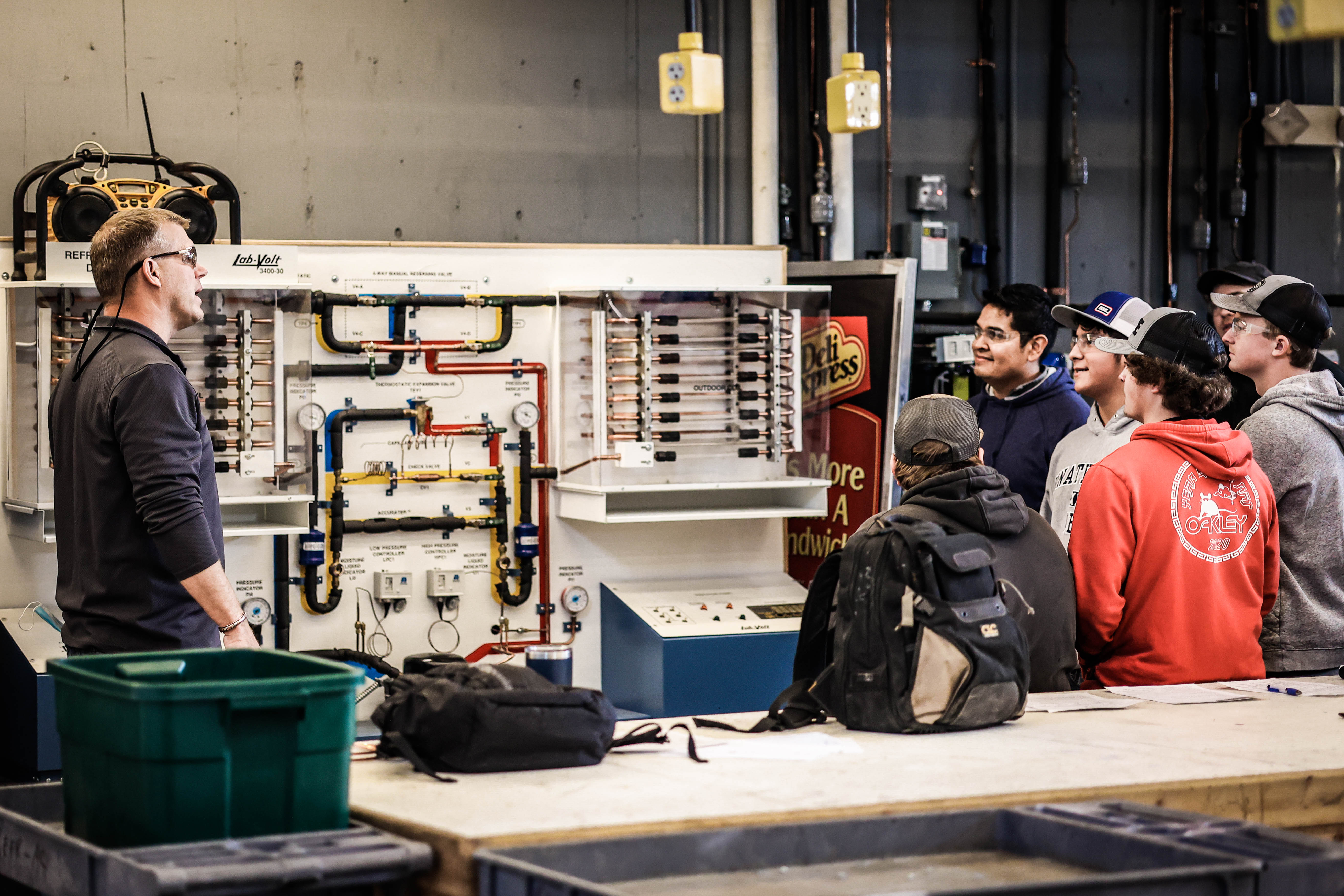
More than half of M State students transfer to a four-year college or university after graduating. Thanks to partnerships with seven Minnesota State system universities as well as Arizona State University and Concordia College, M State offers seamless transfer pathway programs and degrees in many interest areas, including psychology, history, political science, business, art, accounting and more.
M State is also part of Tri-College University, a consortium of five higher education institutions in the region that work cooperatively to give students more course and program options. Through the course exchange program, students enrolled at M State can take two courses per semester at other Tri-College institutions, at the M State tuition rate and without going through separate admissions procedures.
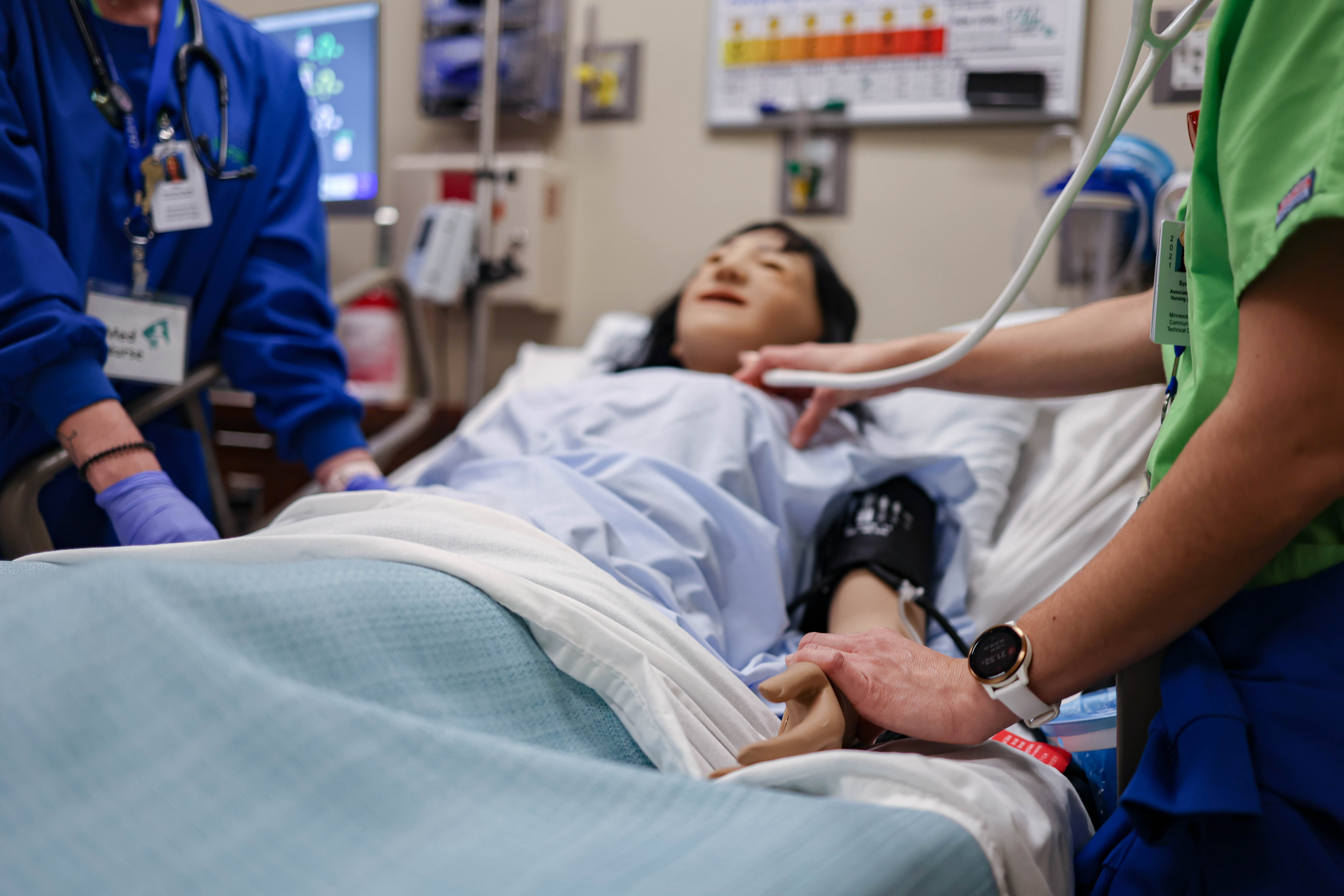 In addition to college and university partnerships, M State works with over 35 school districts in west central rural Minnesota to offer college-level courses to high school students. M State’s concurrent enrollment program, or CEP, was one of the first in the region and has been accredited by the National Alliance of Concurrent Enrollment Partnerships since 2016. Along with other M State dual credit programs, like Postsecondary Enrollment Options (PSEO) and eCampus in the High School, the CEP allows high school students to earn M State college credits.
In addition to college and university partnerships, M State works with over 35 school districts in west central rural Minnesota to offer college-level courses to high school students. M State’s concurrent enrollment program, or CEP, was one of the first in the region and has been accredited by the National Alliance of Concurrent Enrollment Partnerships since 2016. Along with other M State dual credit programs, like Postsecondary Enrollment Options (PSEO) and eCampus in the High School, the CEP allows high school students to earn M State college credits.
In fiscal year 2022, M State served more than 2,300 registered dual credit students, who earned over 30,500 credits prior to their high school graduation. Over the past three years, the average dual enrollment student at M State graduated from high school with 20 college credits already completed.
Exceptional Workforce Training

M State’s Workforce Development Solutions division, or WDS, has seen great growth over the years. WDS has a long and strong reputation for providing workforce development services and other responsive training programs to thousands of participants every year, serving a clientele of more than 500 regional businesses and industries.
In 2022, WDS provided 101,904 hours of training to 5,466 people from 172 businesses. The division saw record-setting revenues and expects to do so again in 2023.
“WDS continues to expand to meet the workforce training needs in our region and beyond,” says G.L. Tucker, executive director of WDS. “Our model of providing any customized training solution, at any time and any location, allows our business and industry partners to schedule training when it is convenient for them. Customizing the training solution in this way adds value for the partner and ensures their employees receive the skills-based training they need to be successful.”
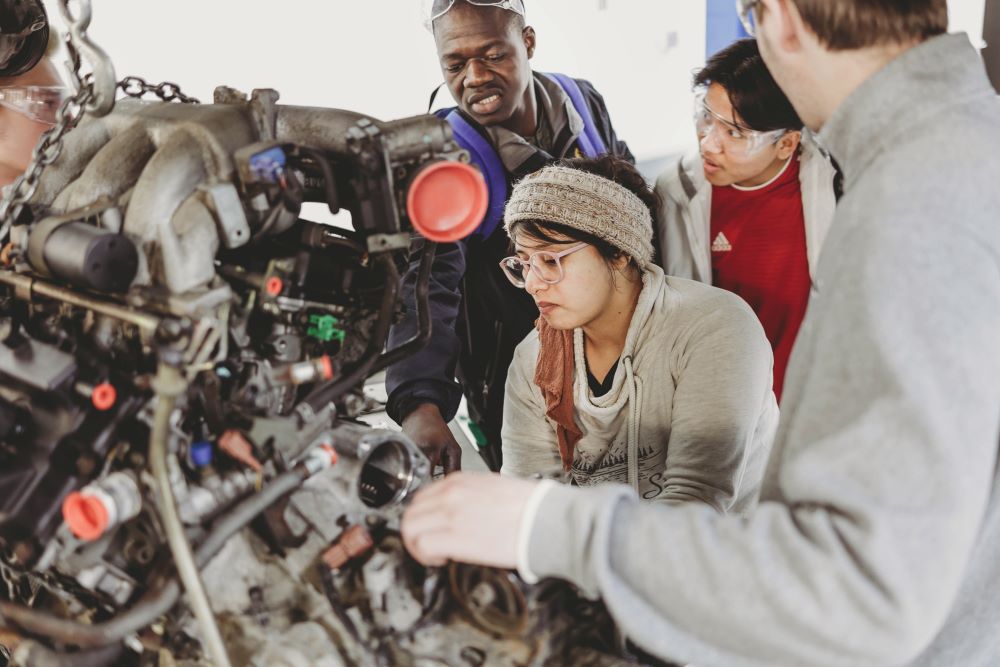 As a recent example of the kind of innovative services WDS can provide, and the unique partnerships it seeks out, this past spring the division embarked on a pilot project with the Cass County Sheriff’s Office to provide targeted workforce training to people incarcerated at the county jail. It was the first time the county offered college-level, curriculum-based coursework at the jail.
As a recent example of the kind of innovative services WDS can provide, and the unique partnerships it seeks out, this past spring the division embarked on a pilot project with the Cass County Sheriff’s Office to provide targeted workforce training to people incarcerated at the county jail. It was the first time the county offered college-level, curriculum-based coursework at the jail.
WDS’s customized trainings are offered above and beyond the targeted instruction and training that M State students receive when they enroll in any credit-based technical program or course. The curriculum for M State’s technical programs is developed with input from regional business and industry leaders to ensure graduates are fully prepared for jobs in their chosen field, and students often gain hands-on experience in real-world work environments like laboratories, healthcare settings or manufacturing facilities.
In addition, M State currently has 13 regional business and industry partners that offer sponsored degrees or tuition reimbursement incentives to students, in a wide range of career fields. The college’s newest such sponsor, Fargo biomanufacturing company Aldevron, is offering sponsored diplomas and degrees in Bioscience. The partnership addresses a specific workforce demand in biomanufacturing while offering M State students full-ride sponsorships and guaranteed jobs after they graduate.
Beneficial partnerships and opportunities like these will only continue to grow at M State. Federal and state investment in equitable access to education and good-paying jobs is on the rise, as is the regional need for skilled workers. Just this past spring, M State was awarded a $4.2 million grant from the U.S. Department of Labor – the largest grant in the college’s history – to expand equitable access to training for jobs in healthcare and other key regional industries.